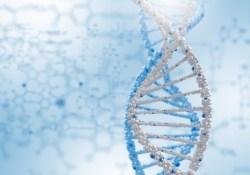
I was prompted to write this piece in response to an article that appeared on the Independent last week under the title: Left-handed people have same genetic code abnormality as those with situs inversus. In addition to the inaccurate headlines, the article contains other mistakes and inaccuracies.
Let’s take a step back and see why this article was published in the first place. In fact, I have not published any research on this topic recently, nor have I announced anything to the press (the original article for which we had a press release goes back to 2013). Instead, in February I was invited to present a Café Scientifique at the Royal Society in London (the audio is still available here). This event was covered by Science Alert and the very popular website IFLScience last week. Both pieces received thousands of “likes” and shares on Facebook reaching considerable attention on the web. None of the pieces came with quite the same sensational headlines as the Independent article – the IFLScience one, in particular, emphasized how little we know so far about handedness genetics. In fact, one key point of my presentation was that the genetics of handedness is likely to be very complex, implicating many genes with different functions without forgetting the environment also plays a role. IFLScience correctly reports that our study identified genetic associations “between handedness and the same gene that sets up the bodies left/right axis”. Disruptions of this gene, and others that were also highlighted in our study, lead to asymmetry defects, like situs inversus, when mutated in mice.
The Independent, instead, uses a very strong terminology: “Genetic abnormalities of people with situs inversus”. This sounds quite bad, but in fact situs inversus is asymptomatic, so people with this condition, which refers to mirror positioning of the internal organs (e.g. heart is on the right instead of on the left), function perfectly normally. And most importantly, there are no “genetic abnormalities” found in both people with situs inversus and left handers and there is no way to predict left handedness by sequencing the genome. On the contrary, both left handers and right handers have functioning copies of these genes. Our study showed that genetic variants that might subtly modulate these genes (e.g. influence how much these genes are active) are associated with handedness, and more specifically with how much one individual is better with one hand versus the other. So the novelty of our study was that for the first time we implicated, at the molecular level, the biology controlling the left/right organization of the visceral organ in contributing to handedness.
IFLScience also described another observation I reported: genome screenings (which test only for genetic variants scattered across the genome, typically in the range of 0.5-1 million markers) have now been performed in tens of thousands people and full sequencing (of the about 3 billion bases that make the human genome) is also becoming available for an increasing number of people. About 10% of these people are expected to be left handers, and therefore if a gene had a particular role in determining left-handedness then these sample sizes are large enough to detect such an effect. The lack of such finding strongly suggests such a gene does not exist. This is quite different than the sub-headings in the Independent article: “100,000 people had their genes sequenced to determine handedness”.
This is then followed with a series of handedness clichés. The claim that left handers earn less money is followed by a list of famous (and rich) left-handers. On the contrary, I said it is very easy and very tempting to try to associate left handedness with all sorts of traits, abilities, skills and personality, but these links have never been convincingly demonstrated. For example, it was believed that left-handers had higher mortality but these claims cannot be confirmed when looking at a large cohort.
Left handers have been subjected to enough unjustified stigmatization and do not need these headlines.
As our “How to tips” explained, an article should always report the original source, but this is clearly missing in this Independent piece with no reference to our original study or the Royal Society report.
I am grateful to Research The Headlines for providing a platform to clarify what I actually said and what our research has shown. Please, get in touch if you had similar experiences with the media you would like to share.
Brandler W.M. et al. (2013). Common Variants in Left/Right Asymmetry Genes and Pathways Are Associated with Relative Hand Skill. PLOS Genetics. DOI:10.1371/journal.pgen.1003751.
Persson. P & Allebeck P. (1994). Do Left-Handers Have Increased Mortality?. Epidemiology.
From → Biology, News Stories

